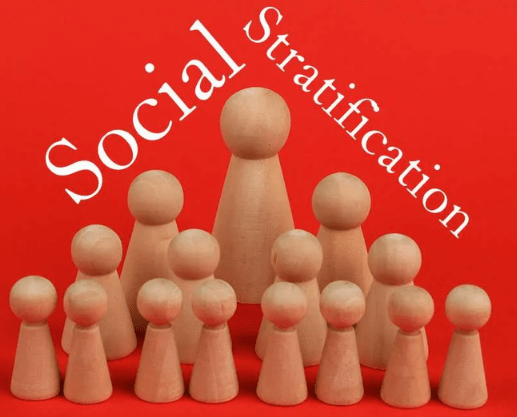
10 Influence Of Social Stratification On Education In Nigeria
Influence Of Social Stratification On Education In Nigeria – Are you curious about the impact of social stratification on education in Nigeria? Look no further! In this blog, we dive into the nitty-gritty of how class, wealth, and status affect access to education in the country. From the haves and have-nots to red tape and bureaucracy, we explore how these factors play out in the Nigerian educational system. Get ready to be schooled on the real deal! We’ll break down the facts, bust some myths and give you the lowdown on what’s going on. So sit back, grab a cuppa, and let’s explore the influence of social stratification on education in Nigeria. Information Guide Nigeria
Read Also: 10 Influence of Social Media on Journalism Practice in Nigeria
👉 Relocate to Canada Today!
Live, Study and Work in Canada. No Payment is Required! Hurry Now click here to Apply >> Immigrate to CanadaWhat Is Social Stratification?
Social stratification is the way society divides people into different groups based on wealth, power, and status. It’s like the pecking order of a society in which some people are at the top and others are at the bottom. This division affects access to opportunities, resources, and privileges like education.
For example, people in high-status groups tend to have better education, job opportunities, and a higher standard of living than those in low-status groups. This certainly makes it tough for those at the bottom class to climb up the social ladder and can create inequality and discrimination against the perceived low-class people.Influence Of Social Stratification On Education
It’s important to understand social stratification because it affects everyone, even if we don’t realize it. It influences the way we think about ourselves and others and even the problems we may encounter and solve only revolve around your social class. It also shapes the opportunities we have in life. It’s like a domino effect that starts at the top and trickles down to the bottom.
Read Also: 10 Influence Of Traditional Education On Modern Education In Nigeria
Types Of Social Stratification
There are certain types of social Stratification to take note of:
- Class system: This type of Stratification is divided by wealth and income.
- Caste system: This type of Stratification is divided by where you were born and the social status you are born into. 10 Best University To Study Art And Design In Nigeria
- Estate system: This class is divided by land, properties, and asset ownership.
- Racial and Ethnic stratification: This type is divided by race and ethnicity
- Age stratification: This type is divided by age
- Political stratification: This type is divided by political power and influence.
- Occupational stratification: This type is divided by occupation and job status.
- Education stratification: This type is divided by level of education and educational achievement.
Background Of Social Stratification On Education In Nigeria
Social stratification has a major impact on education in Nigeria. Nigeria’s class system, based on wealth and income, determines the type of education individuals have access to. The wealthy have access to better educational opportunities and resources, while the poor struggle to receive a quality education. This leads to a disparity in educational achievement and perpetuates the cycle of poverty.20 Best University In Nigeria For Masters Degree
Furthermore, the caste system, based on birth and social status, also affects education in Nigeria. Individuals from high-status families are more likely to receive a quality education and attain high-status jobs, while those from lower-status families are disadvantaged.
Additionally, Nigeria’s history of colonialism has also contributed to the current state of the country and its impact on educational stratification. During colonial rule, education was primarily reserved for the wealthy and influential, which is the birth of the division of class between the educated and the uneducated.NYSC Portal
👉 Relocate to Canada Today!
Live, Study and Work in Canada. No Payment is Required! Hurry Now click here to Apply >> Immigrate to CanadaSocial stratification has a significant impact on education in Nigeria. Addressing this issue requires a concerted effort to provide equal educational opportunities for all, regardless of wealth, birth status, and other factors. Only then can Nigeria close the education gap and achieve a more equal and just society.
Read Also: 10 Influence of vegetation distribution in nigeria
Negative Influence Of Social Stratification On Education In Nigeria
-
The Root of the Problem “Social Stratification” :
Social stratification refers to the division of society into different groups based on social class, wealth, and power. In Nigeria, this division has a negative impact on education, as those in lower classes have limited access to quality education.JAMB Portal
2. Widening the Gap: Income Inequality
Income inequality is one of the biggest drivers of social stratification in Nigeria. The rich have the means to send their kids to private schools while the poor struggle to afford basic education. This exacerbates the problem and leaves a large portion of the population uneducated.JAMB Result
3. Stifling Potential: Lack of Opportunity
Those in lower classes face limited opportunities to rise up the social ladder. This means they’re stuck in low-paying jobs and can’t afford quality education for their kids, perpetuating the cycle of poverty.
4. The Cost of Inequality is a lost generation:
The result of social stratification and its impact on education is a lost generation. Children who don’t receive a proper education are less likely to succeed in life, perpetuating poverty and perpetuating the cycle of social stratification.200 romantic love message for her
5. Breaking the Cycle: A Call to Action
Breaking the cycle of social stratification requires a collective effort from both government and society. Investing in quality education for all, regardless of social class, is essential for a brighter future for Nigeria. We can’t afford to waste the potential of an entire generation.
Read Also: 12 Influence of Culture on Education in Nigeria
Positive Influence Of Social Stratification On Education In Nigeria
-
Access to Quality Education:
Social stratification opens doors to better education opportunities in Nigeria. Higher socio-economic classes have access to top-notch schools, while lower classes have limited options. However, this social divide ensures that the well-off receive quality education, which positively impacts their future prospects.
2. Diverse Learning Environments:
With social stratification comes diverse learning environments. Schools cater to the needs of their respective target audience, providing specialized education that’s tailored to their socio-economic class. This diversity creates competition and drives schools to constantly improve the quality of their education.105 good morning messages
3. Better Teacher-Student Ratio:
In Nigeria, schools in higher socio-economic areas can afford to hire more teachers, leading to smaller class sizes and a better teacher-student ratio. This allows for more individual attention and helps students achieve their full potential.
4. Improved Infrastructure:
Schools in higher socio-economic areas also have access to better infrastructure, such as modern facilities and cutting-edge technology. These resources create a more conducive learning environment and provide students with a well-rounded education.
5. Networking Opportunities:
Finally, social stratification provides students in high socio-economic areas with networking opportunities. They come into contact with like-minded individuals, creating connections that can benefit them in the future. These connections also open doors to new educational opportunities, further enhancing their prospects.
Read Also: 20 Influence Of Greek Education In Nigeria
Conclusion
In conclusion, social stratification plays a significant role in shaping the education system in Nigeria. Wealth, status, and other factors determine access to quality education, creating unequal and unusual opportunities for students. This leads to a divide between the haves and have-nots, or the rich and the poor, both intellectually and economically, with those from lower social strata facing challenges in obtaining a good education. This can result in a lack of diversity and limited access to opportunities for those from disadvantaged backgrounds. The government and educational institutions must address these issues and work towards creating a more inclusive education system that provides equal opportunities for all.
Check JAMB RESULT
Check and Confirm: How much is Dollar to Naira







